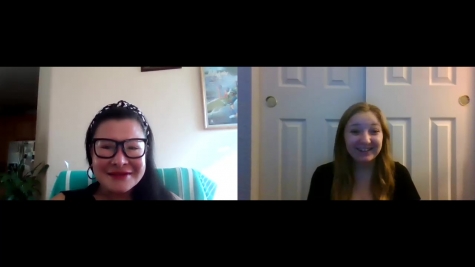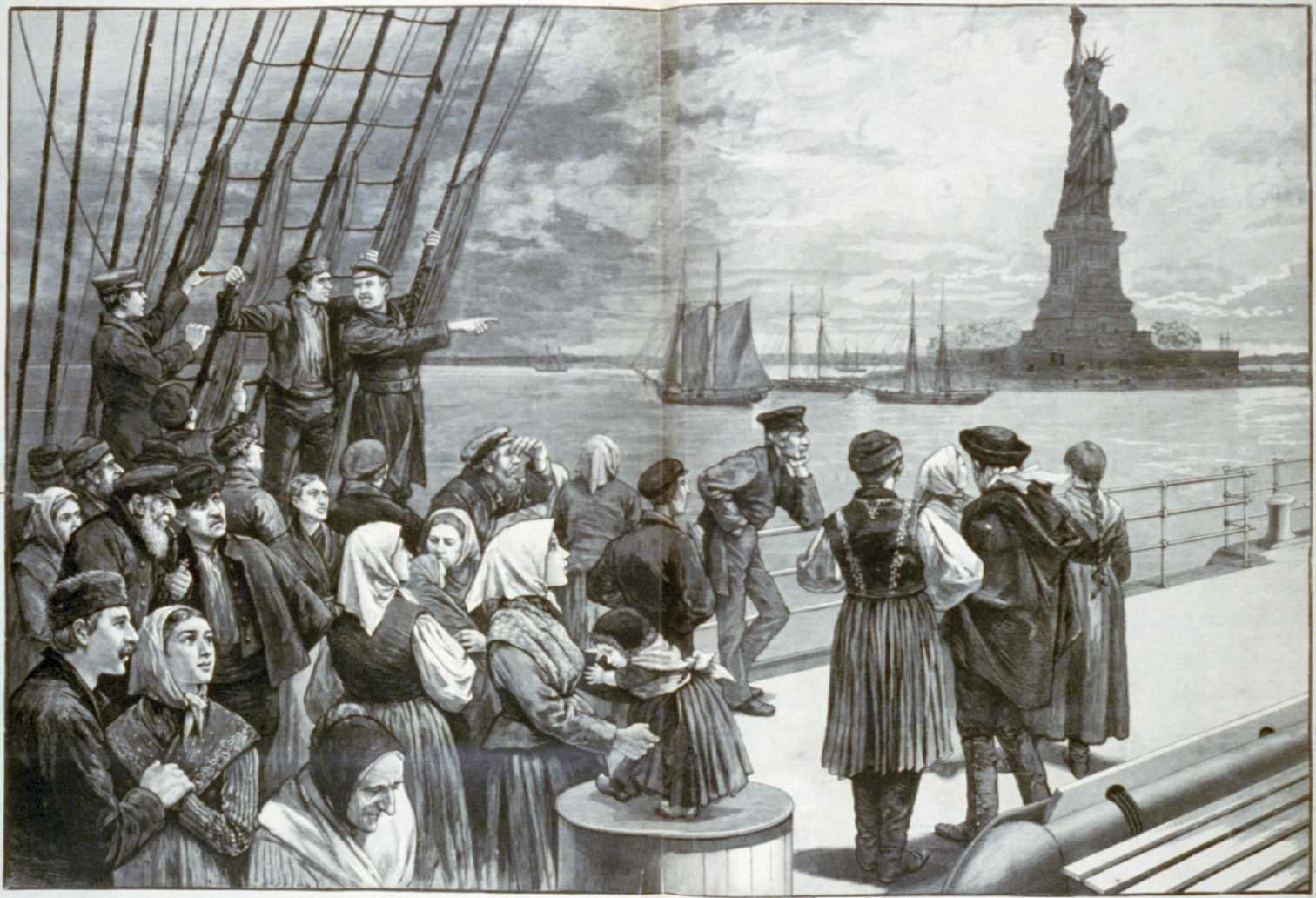America has been seen as the number one country for immigrants looking for a new home. With the first immigrant wave occurring in 1815 consisting primarily of Irish and Germans, America has been a land of immigrants since its founding. In the book, Common Sense, Thomas Paine wrote about America being an asylum for those facing civil and religious scrutiny. George Washington said, “The bosom of America is open to receive not only the Opulent and respected Stranger, but the oppressed and persecuted of all Nations and Religions whom we shall welcome to a participation of all our rights and privileges…” The men that created the United States of America were immigrants themselves, escaping the tight grip of Great Britain, with high hopes of the opportunity this land held.
Today, nearly 14% of Americas’ population are foreign born leaving 86% of us without understanding the perspective so many have of arriving in America for the first time. In 1884, France gifted America the Statue of Liberty, a 305-foot tall statue of a robed woman holding a torch, representing America’s freedom with various symbols throughout her design further communicating the triumph she holds. Lady Liberty welcomed millions of immigrants and refugees into her land at the beginning of the 20th century, New York Harbor being the first stop after a long journey over sea.
Immigrants in the Classroom
While immigrants in the 21st century aren’t being toted for months in a cargo ship jammed full with other weary travelers, immigrating to the US is an experience not many can understand. Americans have the privilege of the American life without having to fight for it, we are born with an advantage that we will never fully grasp, which is why the voices of the recent immigrants are so unique and so important.
Vilma Murdock is a 47 year old woman born in the Philippines, currently attending Sierra College in Rocklin, California. She arrived in America in 2015 after having lived with her former husband in Japan and South Korea as he served in the military. When reflecting on her first impression of America she said, “Oh, it’s like a Disneyland!” Vilma Murdock first arrived in Texas and she said she was so shocked because it looked like a horror movie, “Eyes of Hell,” there were no trees and it was all black and white.

Vilma is taking classes at Sierra College in hopes to become a nurse. She talked about university and said, “In my country, if you’re 55, done. You’re done.”
Back in the Philippines, she applied to a university at the age of 35 but was denied because she was too old. That’s why she came here, to pursue her dreams, “later” in life.
I then spoke with Melanie Boehmer, a 20 year old international student attending California State University, Sacramento majoring in social work. Melanie was born in Germany and decided to study abroad at Sierra College in 2018. What began as a semester abroad became her education path and she has lived here ever since.

If given the opportunity, she would choose to stay in America after she completes her education. The biggest adjustment for her was the college environment, it was overwhelming. She says, “American people have way more connections to their campus than Germans do.” Currently at Sierra College, the student to teacher ratio is 24:1 while in Germany, Melanie explained that the lecture halls have hundreds of students listening to one professor.
Melanie moved back home due to the Coronavirus outbreak and isn’t sure when she will be moving back but hopes it will be sometime soon. She says, “Especially with the time changes, I’m sometimes sitting here until like 2 o’clock in the morning.” Germany is nine hours ahead of California making her college experience a bit more challenging.
I had the opportunity to speak with another college student born in Germany but with a different path. Kiana Varasteh, 18, spent her childhood in a small village Haiterbach, Germany but later she moved with her family to Sacramento in 2014 to be closer to their extended family.

Kiana, along with her two sisters, started school in the middle of the school year and had to adjust to speaking primarily English on an everyday basis. While they began learning English in elementary school and at home, they also spoke German and later learned Latin in sixth grade. It’s not common for American schools to require more than just the two years of required introductory language courses.
For Kiana, the most challenging aspect of American school was, “…understanding the school system itself, such as the differences between regular, Honors, Dual Enrollment, and AP classes.” However, she explained how in Germany, she would be taking ten to twelve classes each year compared to American schools having only 8 a year. This allowed her to take advanced courses without feeling too overwhelmed.
Kiana is currently attending Sierra College to obtain a degree in Fashion Industries and plans to transfer to a university in Europe to get her Bachelors and settle down, however she is not opposed to completing school in America either.
Each person I spoke with had a different circumstance as to why or how they were immigrating to America, whether it be as a child, a semester abroad, or following a loved one. However, they all had strikingly similar responses when I asked what they believe America does well, or what they believe we could work on.
When I asked Vilma what the Philippines should take note of about America, she spoke about the opportunities we have, especially for immigrants. She said that if something is going on, “people just unite, you know, and help.” There’s no question Americans like to use their First Amendment Right of Freedom of Speech. She goes on to talk about the aid we provide one another. We have Financial Aid and while there are homeless everywhere, “there’s a lot of institutions that could help them and we don’t have that in my country either.”
Vilma explained that she worked tirelessly back home to have the little that she had. Even though she grew up in the Philippines, she didn’t know where the financial aid was, she said, “but I could tell myself that this is a very great country and that’s why I told myself, I swore that this is the number one cause like um, I’ve been in South Korea, I’ve been in Japan, they have different systems but I can, it’s just like hiding, they have barrier you know?” Vilma gave examples of how her experiences in America over the last couple years showed her that America will tell you what it offers you, there is no secret barrier you have to climb, it’s all laid out.
One story really resonated with me after our conversation. When she first got to America, she went to a library because she didn’t really know how to navigate America. The people at the library had a really difficult time understanding her English but they never gave up, “They try to understand, and they don’t let me go home that empty, you know? And they give me some information and they teach me specifics. So that’s a very remarkable experience when I was arriving here.”
Now, Vilma’s story is different from the other women I spoke with because she came here as a grown adult seeking an education at an age where her home country denied her. She came to a foreign land alone, navigating alone. Melanie had previous connections to Grass Valley, California, however she still lives alone attending an American college.
When I asked Melanie what she believes is something America should take notes of about Germany, she said, “I think America could really work on their health care system,” but then switched to quickly speak about America’s friendliness. We don’t walk around with stiff faces and even with Coronavirus, there were news articles on how to show a kind face when you can only see each other’s eyes. She said, “The friendliness is just, I don’t know, something that lifts you up.”
Then I asked Kiana what she believes is something America should take notes of about German schools and she said that while America gives many opportunities to students, she does like Germany’s school system. She said, “Something I believe Germany is successful at is providing people with differing learning styles and varying schooling needs with what they need to be a successful member of society.” She goes on to explain the different paths you choose at different ages and how you are sent to specific schools/classes depending on your goals for the future.
Shift in Point of View
So, the question is, how can we use an immigrant’s perspective? It’s easy to get sucked into the day to day news and negativity about all the things going wrong or all of the ways we could do better. Rather than arguing, we should be listening to those seeking the American Dream and hearing what they have to say. This country was developed by immigrants who saw this land as a new way of governing. And centuries after our independence from Britain, we are still the country immigrants and refugees flock to.
In an hour of talking to these women, I heard more about opportunities and education and unity than I have all year on the news. America was made for and by immigrants. America is a place of sanctuary, a place to pursue your dreams. Somewhere along the way, we have lost sight of why this country was created in the first place. “It says something about our country that people around the world are willing to leave their homes and leave their families and risk everything to come to America. Their talent and hard work and love of freedom have helped make America the leader of the world. And our generation will ensure that America remains a beacon of liberty and the most hopeful society this world has ever known,” George W. Bush.
These three women I spoke to have undoubtedly been given opportunities that they would not have in their birth country. They made that drastic, scary move to a new country with the beliefs that it will give them a new life. Not only are Vilma, Melanie, and Kiana experiencing a new life in America, but they are giving American’s a new purpose. Today’s generations and all those after are left with the task of keeping the vision of America alive. While we may have created America as immigrants and for immigrants to come, we have strayed from our path a few times too many. It is our job, as the new generations of America, to keep this the land of the immigrants, open to all who seek a new life.

